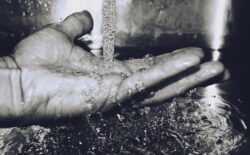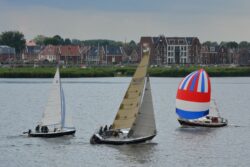Camp Lejeune Lawsuit Updates & News June 2023
IN THE UNITED STATES DISTRICT COURT FOR THE EASTERN DISTRICT OF NORTH CAROLINA 7:23-CV-897
The United States District Court for the Eastern District of North Carolina is presiding over a significant legal case known as the Camp Lejeune Water Litigation. This case involves multiple parties and requires a structured approach to ensure fair proceedings. In this article, we will explore the recent court order and the subsequent processes that will unfold in the litigation.
1. Introduction
The Camp Lejeune Water Litigation is a prominent legal case currently being heard in the United States District Court for the Eastern District of North Carolina. This case addresses the issues surrounding contaminated water at Camp Lejeune, a military base in North Carolina, and seeks justice for the individuals affected by the water contamination.
2. Master Docket and Filing Process
To effectively manage the case, the court has established a Master Docket case file titled "In re: Camp LeJeune Water Litigation." This Master Docket will serve as a centralized repository for all relevant information related to the case. However, it is essential to note that only authorized individuals will be permitted to file in the Master Docket.
3. Plaintiffs’ Leadership Counsel and Steering Committee
The court has called for interested parties to submit materials if they wish to serve as Plaintiffs' Leadership Counsel or be a part of the Plaintiffs' Steering Committee. These materials should include qualifications, proposed leadership structure, common fund issues, and the proposed length of appointments.
4. Development of Legal Processes
Once the court has reviewed the submissions and determined the appropriate leadership structure, it will seek input from the plaintiffs and the defendant on various aspects of the case. These aspects include the creation of a master complaint, master answer or other responsive pleadings, discovery consolidation, phased discovery, coordination of expert-related motions, coordination of dispositive motions, bellwether selection, trial procedures, and settlement negotiation processes.
5. Discovery Process
As part of the legal proceedings, the court intends to establish an Electronically Stored Information (ESI) protocol. Additionally, the court will address the scope of discovery, seeking input from all parties involved. The court will also explore the use of stipulations to streamline the discovery process. Furthermore, a case-specific database will be developed to gather case-crucial information for each plaintiff and the defendant.
6. Pro Hac Vice Motion for Non-Bar Members
To ensure a fair and comprehensive representation of the parties involved, the court has devised a process for lawyers who are not members of the court's bar to appear in multiple Camp Lejeune Justice Act cases. These lawyers must complete a pro hac vice motion, accompanied by a fee, to seek admission to the case. The court requires electronic filing of the motion and the submission of contact information for each lawyer seeking admission.
7. Conclusion
The United States District Court for the Eastern District of North Carolina is actively overseeing the Camp Lejeune Water Litigation case. Through the implementation of a Master Docket and the establishment of a structured legal process, the court aims to address the complexities of this case effectively. With the involvement of Plaintiffs' Leadership Counsel and the formation of a Plaintiffs' Steering Committee, the court is committed to ensuring a fair and just resolution for all parties involved.
FAQs
- Q: What is the Camp Lejeune Water Litigation?
- The Camp Lejeune Water Litigation refers to a legal case concerning contaminated water at Camp Lejeune, a military base in North Carolina. It aims to provide justice for those affected by the water contamination.
- Q: What is the purpose of the Master Docket case file?
- The Master Docket case file serves as a centralized repository for all relevant information related to the Camp Lejeune Water Litigation. It helps manage the case more efficiently.
- Q: How can lawyers who are not members of the court's bar appear in the case?
- Lawyers who are not members of the court's bar can seek permission to appear in the case by completing a pro hac vice motion and paying the required fee.
- Q: What processes will the court undertake in the discovery phase?
- The court will establish an ESI protocol, determine the scope of discovery, explore the use of stipulations, and create a case-specific database to gather crucial information.
- Q: What is the expected outcome of the Camp Lejeune Water Litigation?
- The expected outcome of the Camp Lejeune Water Litigation is to ensure a fair and just resolution for all parties involved, addressing the issues surrounding the contaminated water at Camp Lejeune.





